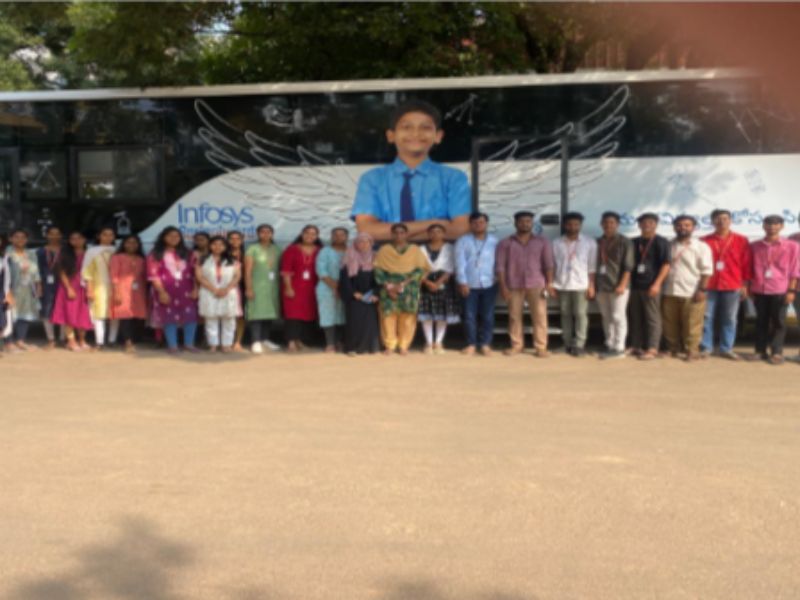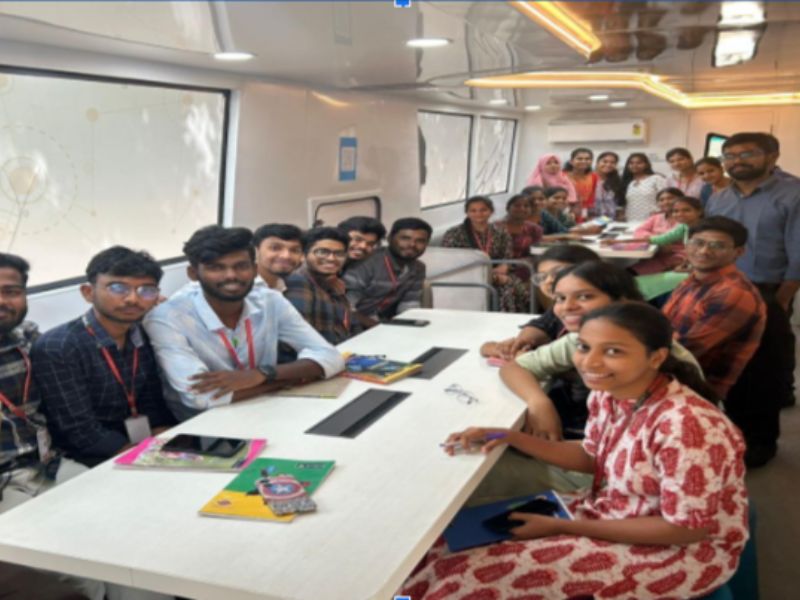Organized by the Department of Computer Science and Engineering, VJIT
Date: 8th November 2024
The students of the Department of Computer Science and Engineering at Vidya Jyothi Institute of Technology participated in an insightful industrial visit to Infosys Springboard on 8th November 2024. The visit provided practical exposure to key concepts in electronics, sensor technology, circuit design, and remote automation.
Key Learning Areas
1. Applications of Sensors
Students explored the real-world applications of sensors across different domains:
- CCTV Cameras: Sensors detect unusual activities and alert authorities for prompt action.
- Vehicles: Used in proximity systems to detect approaching objects, aiding in collision avoidance.
- Smart Devices: Enable motion detection in smart homes to automate lighting and security systems.
- Remote Control of Electronic Gadgets: Sensors facilitate automation and control even when users are away.
- Automatic Train Detection: Enhance safety by monitoring train locations and movements.
2. Understanding Circuit Connections
The session explained how components in electronic circuits are interconnected:
- Series Connection: Components are linked end-to-end in a single path for current.
- Parallel Connection: Multiple paths for current through shared points, enhancing circuit reliability.
- Mixed Connection: A combination of series and parallel circuits, common in complex systems.
3. Sensor Integration via Circuit Design
Students learned how to design and build sensor-based systems from scratch:
- Component Selection: Choosing the right sensors, microcontrollers, and support components.
- Circuit Diagram Design: Planning and mapping the layout of the components.
- Assembly: Building the circuit using a breadboard or PCB.
- Programming: Writing and uploading code to microcontrollers to process sensor input and trigger actions.
4. Types of Internships Introduced
Students were also briefed on internship types and opportunities available:
- Paid Internships: Compensation for contributions to real-time projects.
- Unpaid Internships: Focus on gaining practical experience and professional exposure.
- Stipend-based Internships: Small allowances provided during the internship period.
5. Completing Courses on Infosys Springboard Platform
The visit also included a demonstration of how to make the most of the Infosys Springboard platform:
- Enrolling in Courses: Step-by-step registration guidance.
- Learning Modules: Engaging video lectures, readings, and interactive content.
- Quizzes and Assessments: Evaluating understanding and progress.
- Group Activity:
- Assembling Circuits
- Coding and Debugging
- Sensor Integration
- Testing the Project (e.g., activating a buzzer upon object detection)
Conclusion
The visit to Infosys Springboard provided an enriching hands-on experience that connected classroom knowledge with real-world applications. Students gained a clear understanding of how sensors and circuit logic power modern devices and how such technologies can be harnessed through structured training and collaborative learning.























0 Comments